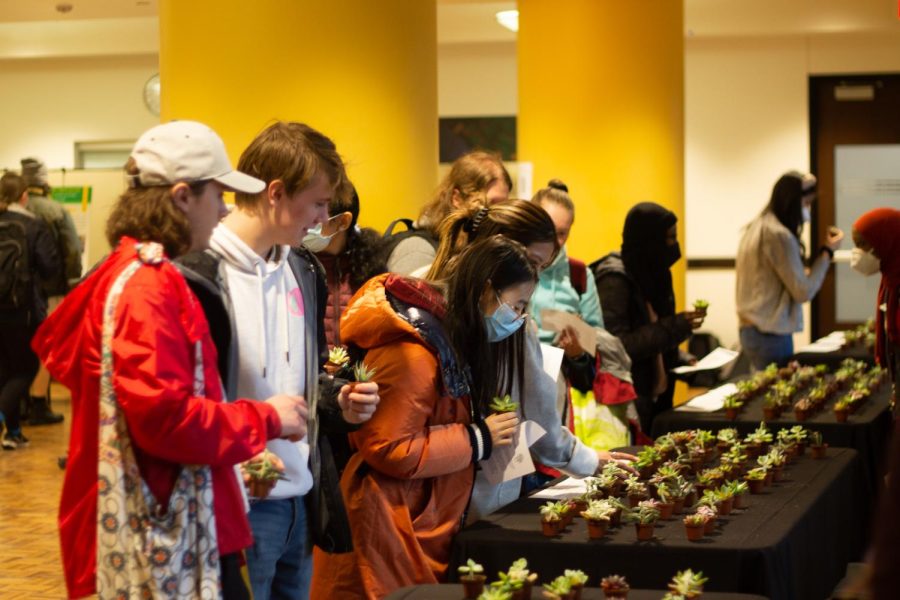The College of Liberal Arts (CLA) Student Board hosted a Sustainability Resource Fair Tuesday to get University of Minnesota students involved in sustainability organizations on campus and raise awareness on environmental issues.
The Environmental Student Association (ESA), Food Recovery Network, 365 Green, Clean Energy Recovery Team and Eureka Recycling all participated in the resource fair. The groups interacted with prospective students and provided information on implementing sustainable practices in everyday life and on plant growing techniques.
“We want to bridge the gap between students and [sustainability] resources in order to find ways to centralize information that is digestible,” CLA student board president Layne Bower said.
Climate change, food insecurity and air and water pollution are also being discussed by these student groups. Part of the student board’s role is to bring demands and ideas from student groups to the University administrators who can make changes, according to Bower.
“The student board is a platform for students and groups to bring concerns about sustainability and waste management to [CLA Dean] Dean Coleman and other CLA administrators,” Bower said.
In addition to students, employees at the University are discussing how to make the University more environmentally sustainable. One concern among staff is addressing the improper disposal of waste on campus.
ESA said they want to involve those outside of environment-related majors in learning and practicing sustainability, and also partner with organizations like Students for Climate Justice, who have focused on the University’s intent to divest from fossil fuels, according to ESA president Gaby Gutenkauf.
“I would like to see a real commitment away from fossil fuels, including a detailed plan about how the University will be held accountable for meeting their goals,” Gutenkauf said.
Several student groups said they want to see campus become more energy efficient so sustainability is built into the student experience, according to Gutenkauf and CLA Event Officer Zaynab Somani.
To implement these changes and make buildings more efficient, CLA administrators are partnering with Facilities Management and Energy Management, according to CLA Chief Financial Officer Brent Gustafson.
To begin this work, CLA installed more efficient LED lighting fixtures in Johnston Hall prior to the pandemic, according to Gustafson.
“These additions included installing many more motion-activated lighting sensors to reduce energy consumption when spaces are unoccupied,” Gustafson said.
Bower said sustainability and accountability go hand-in-hand, and both students and the University need to be held responsible for maintaining sustainable practices.
“We don’t want students to not know where to go if they have interests or passions in sustainability or environmental issues,” Somani said. “We can help ensure that the University is offering students a sustainable experience.”



















